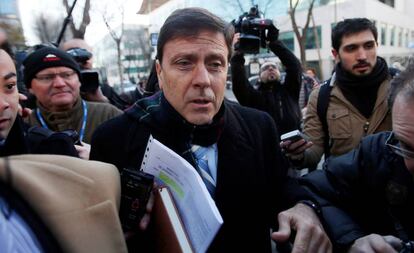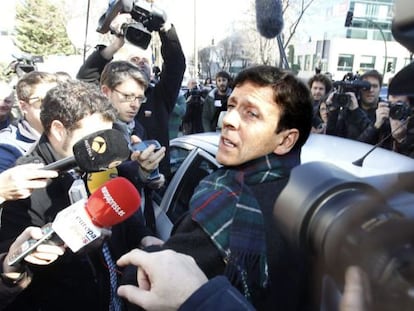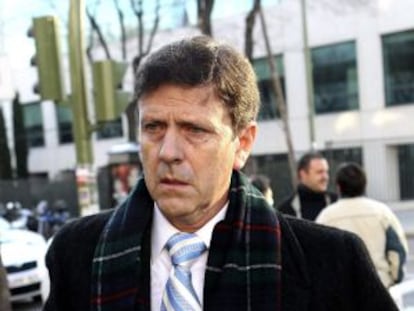Spain must seek the truth behind the Operation Puerto doping scandal
The case is not a problem for the World Doping Agency, it¡¯s a problem for Spanish sport, one that has particularly affected cycling and athletics
On May 17, the Executive Committee of the World Doping Agency (AMA) treated Operation Puerto as just another item on the day¡¯s agenda. Eleven years after that day, which was when we arrested Manolo Saiz and Eufemiano Fuentes in a hotel in Madrid, the doping operation is still lingering on and is yet to be resolved.

The sentence emitted from a Madrid lower criminal court on April 29, 2013 considered to have found proof that since the year 2002, there was a pattern of blood extractions and the administration of drugs such as EPO, IGF-I, testosterone, insulin, etc. to athletes ¨C at a price, and with risks for their own health.
But these proven facts were then taken to the Madrid Provincial Court, whose ruling went the opposite way and acquitted all of those who had been found guilty in the first case. The Provincial Court considered that the blood was not a medication and as such there was no crime. And that was in spite of the abundant jurisprudence that the sentence itself included finding the opposite. Whereas the lower court had decided not to hand over samples of the blood bags that were seized, the Provincial Court authorized them to be handed over to the AMA, the International Cycling Union, the Italian National Olympic Committee and the Spanish Royal Cycling Federation.
The problem is not discovering that there is corruption; the problem is not responding to that corruption in a firm and a determined manner
All of this was in the sentence of June 10, 2016. A sentence that was passed shortly after the 10th anniversary of Operation Puerto. Ten years is the statute of limitations established in the 2015 World Anti-Doping Code. However, the offenses had actually prescribed in May 2014, and the new code could not be applied in this case to infractions that had previously prescribed.
And practically one year later, we are still in the same situation, something that perhaps makes us forget that Puerto is not a problem of the AMA: it¡¯s our problem, the problem of Spanish sport, where cycling and athletics are particularly affected. The problem is not discovering that there is corruption; the problem is not responding to that corruption in a firm and a determined manner.
Eleven years later, Spain has the same responsibility as in 2006: finding out the truth. It¡¯s a question of credibility. That¡¯s how the French Senate saw it when it published its report about doping and the new analysis of the 1998 Tour de France. We cannot delegate our responsibilities to the AMA. It is Spain that must be implicated in the investigation supporting the AMA, seeking the collaboration of the athletes themselves who at the time were under suspicion, and to halt the mistrust of those who have the responsibility of safeguarding the credibility of sport.
Enrique G¨®mez Bastida was the Civil Guard official in charge of Operation Puerto. He has also served as the head of the Spanish anti-doping agency.
Tu suscripci¨®n se est¨¢ usando en otro dispositivo
?Quieres a?adir otro usuario a tu suscripci¨®n?
Si contin¨²as leyendo en este dispositivo, no se podr¨¢ leer en el otro.
FlechaTu suscripci¨®n se est¨¢ usando en otro dispositivo y solo puedes acceder a EL PA?S desde un dispositivo a la vez.
Si quieres compartir tu cuenta, cambia tu suscripci¨®n a la modalidad Premium, as¨ª podr¨¢s a?adir otro usuario. Cada uno acceder¨¢ con su propia cuenta de email, lo que os permitir¨¢ personalizar vuestra experiencia en EL PA?S.
En el caso de no saber qui¨¦n est¨¢ usando tu cuenta, te recomendamos cambiar tu contrase?a aqu¨ª.
Si decides continuar compartiendo tu cuenta, este mensaje se mostrar¨¢ en tu dispositivo y en el de la otra persona que est¨¢ usando tu cuenta de forma indefinida, afectando a tu experiencia de lectura. Puedes consultar aqu¨ª los t¨¦rminos y condiciones de la suscripci¨®n digital.










































